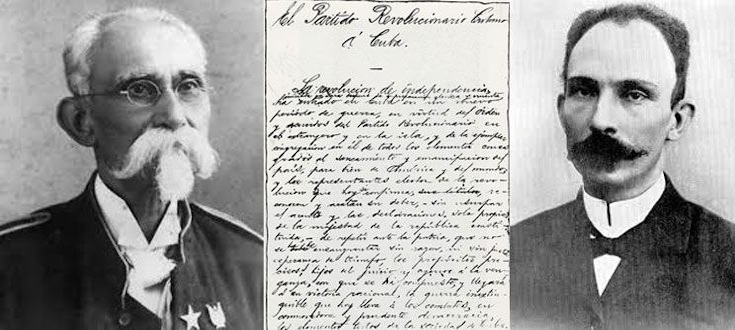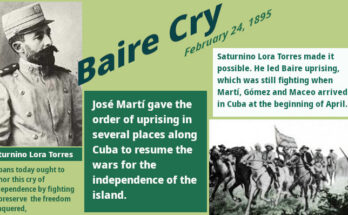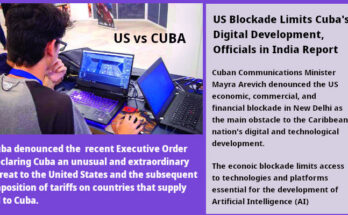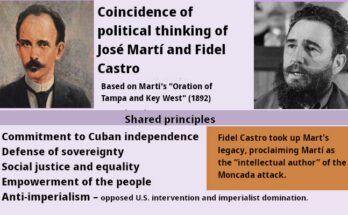March 25, 1895 was one of the most intense days in the life of José Martí. That day the Apostle wrote three of his memorable letters: to his mother, to María Mantilla and to his Dominican friend Federico Henríquez y Carvajal.
And as an extraordinary fact, together with Máximo Gómez, he wrote the Montecristi Manifesto, which became the programmatic platform of the Revolution of 1895 and whose transcendence surpassed its time to reach ours with full validity.
To Doña Leonor, author of his days, he says: “A man’s duty is where it is most useful; but with me always goes, in my growing and necessary agony, the memory of my mother”.
Meanwhile, to Maria Mantilla he writes: “I am leaving suddenly for a long journey. I must always receive a letter from you, and it is the news that the sun and the stars will bring me, that you will not love in this world, but what deserves love”.
While to his friend Henríquez y Carvajal he reveals the destiny of his life, the fundamental reason that has allowed him to overcome so much hardship and misfortune: “I evoked the war, my responsibility begins with it, instead of ending. For me the Fatherland will never be triumph but agony and duty.
The Manifesto was written in one go and signed together with Máximo Gómez, to endorse the will of the Cubans to wage a generous and brief war, with a democratic spirit and continuity of the one initiated by Carlos Manuel de Céspedes in Yara.
Evidently, the talent reflected in a programmatic document is astonishing. In those pages, with the small handwriting of José Martí, were trapped 15 years of incessant struggle in emigration dedicated to unite the diverse and the dispersed and to weave the safe nets of the conspiracy in Cuba.
In the Manifesto of Montecristi, Martí, with his unmistakable elegance in language, used sobering paragraphs where he rejected, denying everything he did not want for the Revolution he had called for and which had broken out in Cuba a month before, on February 24, 1895.
Today, 129 years after the Montecristi Manifesto, its emancipating and Latin Americanist ideas are still very much up to date, as a barrier against those other hegemonic ideas that are trying to be revived, such as the Monroe Doctrine.
The Manifesto signed in Montecristi gained new strength in the Moncada program, and now, when new threats threaten us, it will be present in the Bolivarian and Marti’s dream of Latin American integrationist unity.
“From its roots, the Homeland must be constituted with viable forms, born of itself, so that a government without reality or sanction does not lead it to partiality or tyranny”, the historic document sentenced.




